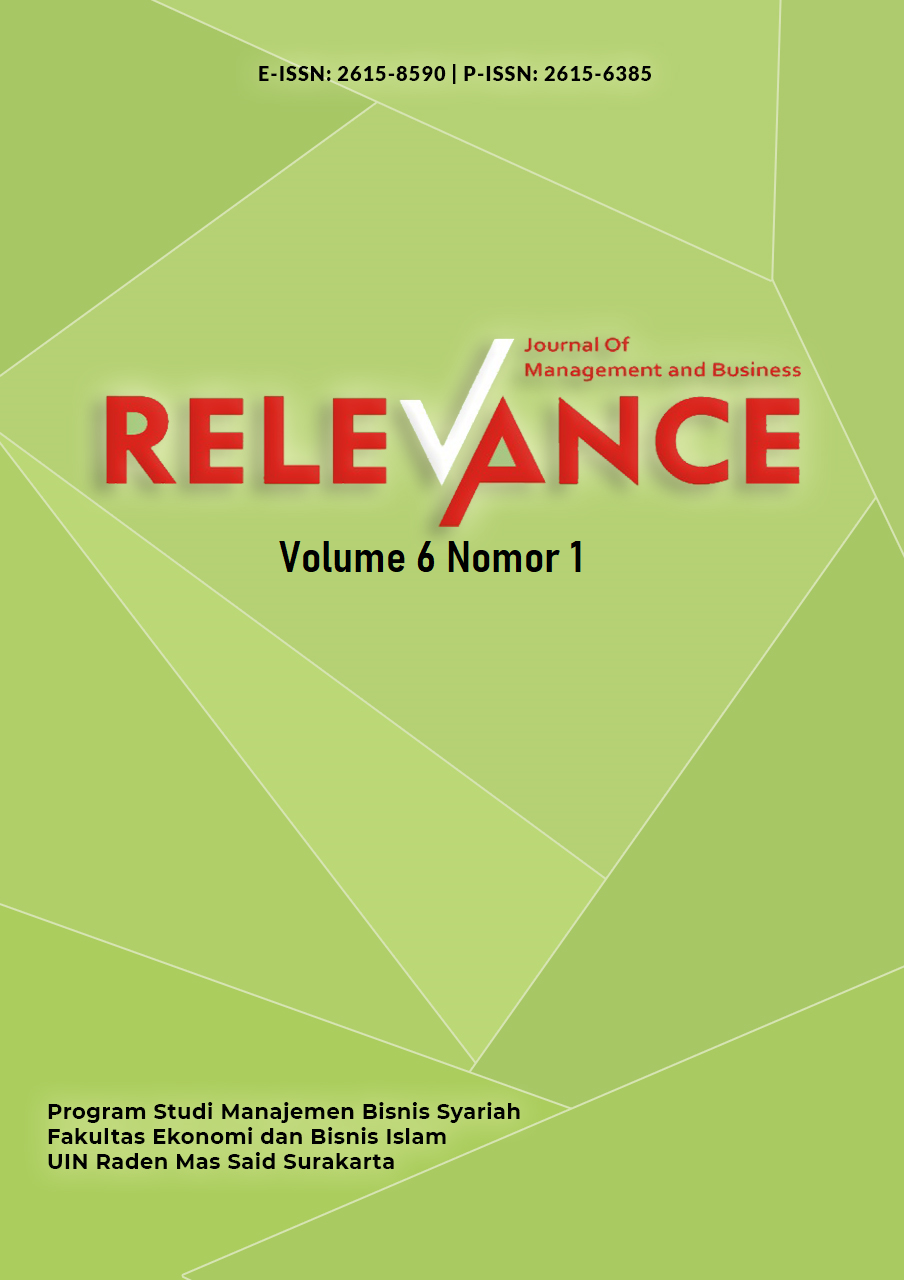##plugins.themes.academic_pro.article.main##
Abstract
Damage to the environment and ecosystem can be caused by various things, one of which is the accumulation of residual waste or waste originating from industry and households. Plastic bag waste has become a common problem across continents and countries, waterways and oceans. Plastic bag waste is increasing in Indonesia every year and the environmental conditions are very concerning. The use of eco-friendly shopping bags needs to be encouraged to reduce the use of plastic bags. Starting in 2009, several supermarkets or supermarkets and hypermarkets in Indonesia have started to promote eco-friendly campaigns, namely the use of eco-friendly cloth shopping bags (green bags) as a substitute for plastic bags which tend not to be environmentally friendly. Therefore it is important for consumers to contribute to environmental sustainability through pro-environmental behavior (pro-environment).
Keywords
##plugins.themes.academic_pro.article.details##

This work is licensed under a Creative Commons Attribution-NonCommercial 4.0 International License.
References
- Ajzen, I. (1991). The Theory of Planned Behaviour (Vol. 50, Issue 1). Academic Press. Inc.
- Almuhaymin, R., Jatiningrum, W. S., & Selatan, J. R. (2022). Pengembangan Model Theory of Planned Behavior Untuk Analisis Niat Menggunakan Tas Belanja Ramah. Jurnal REKAVASI, 10(2), 11–20. http://eprints.ums.ac.id/37501/6/BAB II.pdf
- bappeda.jogjaprov.go.id. (2023). Sarana Perdagangan Kota Yogyakarta. http://bappeda.jogjaprov.go.id/dataku/data_dasar?id_skpd=18
- bps.go.id. (2023). Proyeksi Jumlah Penduduk DIY. https://yogyakarta.bps.go.id/indicator/12/133/1/jumlah-penduduk-menurut-kabupaten-kota-di-d-i-yogyakarta-.html
- Djollong, A. F. (2014). Tehnik Pelaksanaan Penelitian Kuantitatif (Technique of Quantitative Research). Istiqra’ : Jurnal Pendidikan Dan Pemikiran Islam, 2(1), 86–100. https://jurnal.umpar.ac.id/index.php/istiqra/article/view/224
- Gutiérrez Taño, D., Hernández Méndez, J., & Díaz-Armas, R. (2022). An extended theory of planned behaviour model to predict intention to use bioplastic. Journal of Social Marketing, 12(1), 5–28. https://doi.org/10.1108/JSOCM-09-2020-0190
- He, H. (2012). Effects of environmental policy on consumption: Lessons from the Chinese plastic bag regulation. Environment and Development Economics, 17(4), 407–431. https://doi.org/10.1017/S1355770X1200006X
- Kelurahan Karangsari. (2020). Mengenal Karakter Generasi: Dominasi Gen X, Z dan Millenial Dalam komposisi Penduduk DIY. Kulonprogo DIY. https://karangsari-kulonprogo.desa.id/index.php/artikel/2021/6/15/mengenal-karakter-generasi-dominasi-gen-x-z-dan-milenial-dalam-komposisi-penduduk-diy
- Kusnandar, V. B. (2021). Penduduk usia produktif di Yogyakarta. Katadata.Co.Id, Databox. https://databoks.katadata.co.id/datapublish/2021/12/28/sebanyak-69-penduduk-yogyakarta-berusia-produktif
- Nguyen, T. P. L. (2022). Intention and behavior toward bringing your own shopping bags in Vietnam: integrating theory of planned behavior and norm activation model. Journal of Social Marketing, 12(4), 395–419. https://doi.org/10.1108/JSOCM-06-2021-0131
- Novianti, A. I., & Kartika, L. (2017). Pengaruh Green Marketing Kebijakan Kantong Plastik Berbayar Terhadap Green Behaviour Masyarakat Kota Bogor (The Influence of Green Marketing Policy of Plastic Bags Levy against Green Behavior of the people in Bogor City). Jurnal Riset Manajemen Dan Bisnis, 2(1), 81–94. https://webcache.googleusercontent.com/search?q=cache:7UA3nkxPHoQJ:https://media.neliti.com/media/publications/259326-pengaruh-green-marketing-kebijakan-kanto-cf7524cf.pdf+&cd=1&hl=en&ct=clnk&gl=id&client=firefox-b-ab
- Nursimah, Arista, W., & Salia, E. (2020). Model Hukum Lingkungan dalam Penyelenggaraan Kantong Plastik Berbayar dalam Rangka Mencegah Kerusakan Lingkungan di Kota Palembang. Lex Librium : Jurnal Ilmu Hukum, 6(2), 224–230. https://doi.org/10.46839/lljih.v6i2.266
- Rani, M. S. (2016). Komunikasi Lingkungan sebagai Fondasi dalam Kampanye Penggunaan Tas Belanja Kain Ramah Lingkungan (Green Bag) di Indonesia. Komunikasi Industri Dan Komunitas, 1–15.
- Setó-Pamies, D., & Papaoikonomou, E. (2020). Sustainable development goals: A powerful framework for embedding ethics, CSR, and sustainability in management education. Sustainability (Switzerland), 12(5). https://doi.org/10.3390/su12051762
- Sugiyono. (2004). Metode Penelitian Bisnis (Keenam). Alfabeta, Bandung.
- Tucker, M., Jubb, C., & Yap, C. J. (2020). The theory of planned behaviour and student banking in Australia. International Journal of Bank Marketing, 38(1), 113–137. https://doi.org/10.1108/IJBM-11-2018-0324
- Utomo, A. Z., & Dwiyanto, B. M. (2022). Pengaruh Green Marketing Dalam Sosialisasi “Diet Kantong Plastik” Terhadap Keputusan Pembelian Pada Produk Eco Bag (Tas …. Diponegoro Journal of …, 11, 1–15. https://ejournal3.undip.ac.id/index.php/djom/article/view/36588%0Ahttps://ejournal3.undip.ac.id/index.php/djom/article/download/36588/28127
- Wekke Suardi, I. dkk. (2019). Metode Penelitan Sosial. In Angewandte Chemie International Edition, 6(11), 951–952.
- Wiyono, G. (2011). Merancang Penelitian Bisnis (1st ed.). UPP STIM YKPN. https://scholar.google.co.id/citations?view_op=view_citation&hl=id&user=2yvedHgAAAAJ&citation_for_view=2yvedHgAAAAJ:IjCSPb-OGe4C
